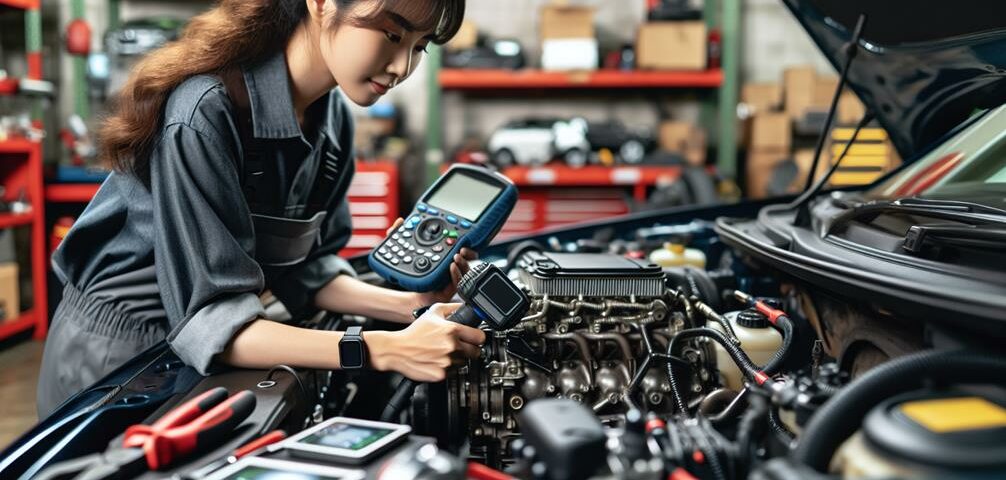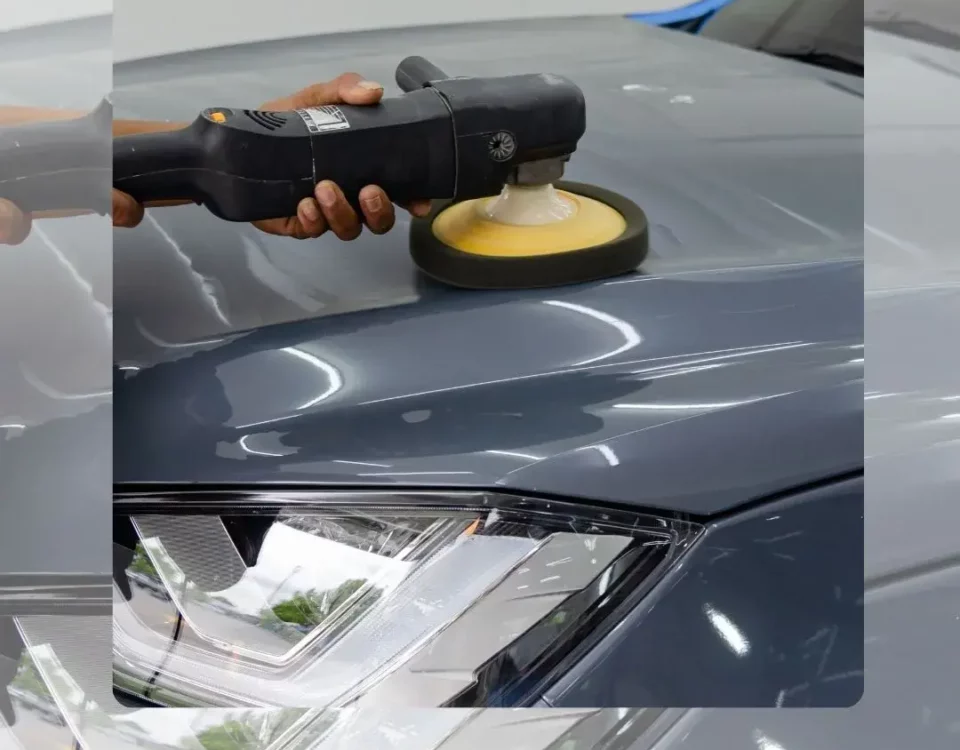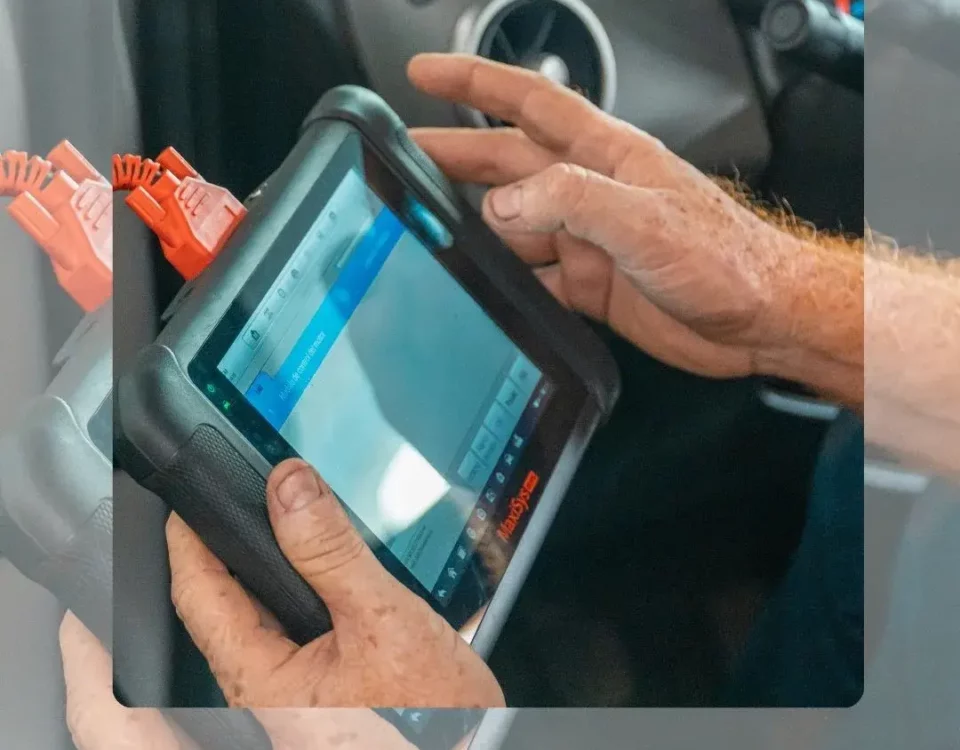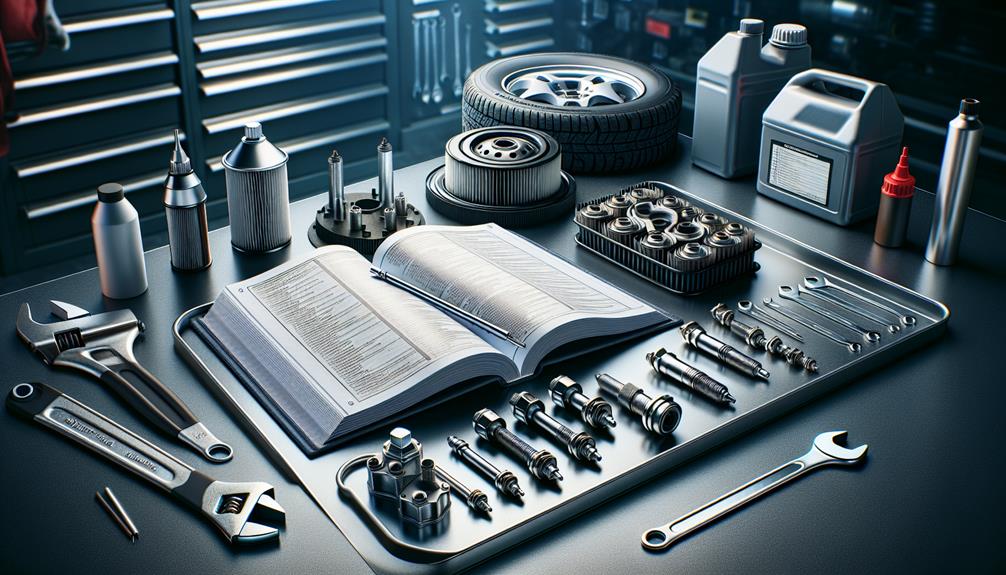
The Essential Guide to Auto Service: Key Maintenance and Checks for Your Vehicle
April 2, 2024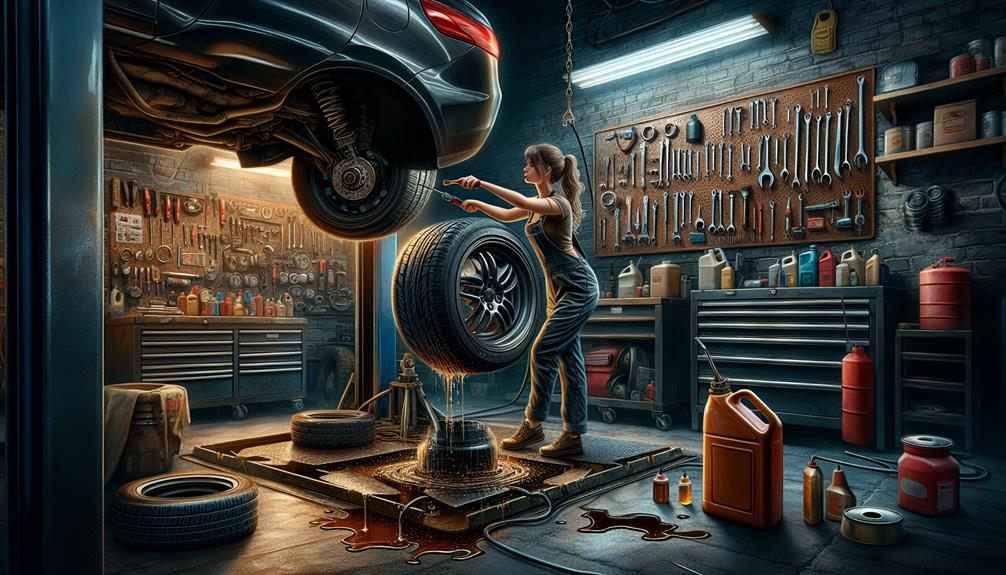
The Ultimate Guide to Car Mechanic Core Services: From Oil Changes to Tire Rotations
April 8, 2024You might not be aware, but the heart of your vehicle’s engine diagnostics lies in its Engine Control Unit (ECU) – a powerful computer that collects, interprets, and responds to signals from sensors scattered throughout your vehicle.
Your role as a mechanic starts with understanding how to navigate this sophisticated system, using detailed diagnostics to pinpoint issues, and utilizing precise repair techniques to solve them. It’s not just about replacing parts; it’s about understanding the ‘why’ behind the problem.
Now, what if I told you that, with the right knowledge and a meticulous approach, you could master these core services, significantly enhancing your efficiency and credibility as a mechanic? Wouldn’t that be a game changer?
But hold on, there’s more to uncover in this fascinating aspect of auto mechanic engineering.
Understanding Engine Diagnostics
Diving into the world of engine diagnostics, you’ll discover it’s an essential tool in a mechanic’s arsenal, providing invaluable insights into your car’s performance and potential issues.
You’ll learn that it’s more than just a dashboard indicator; it’s a complex system that monitors the engine’s vital components. When you understand how this works, you’re not just a car owner, you’re part of an informed community.
It’s like having a translation guide for your car’s language, allowing you to understand ‘engine speak.’ You’ll be able to recognize when something’s off and take preventative measures to avoid costly repairs.
Mastering Engine Repair Techniques
Now that you’re familiar with engine diagnostics, let’s delve into the practical aspect of car maintenance: mastering engine repair techniques.
Here’s the thing. You can’t just guess your way through a repair. You’ve got to know your stuff. So, get your hands dirty. Learn about the various engine components, their functions, and how they interact. Understand the difference between a 4-cylinder and a V6.
Get to grips with timing belts, spark plugs, and fuel injectors. Master the repair techniques: replacing faulty components, adjusting settings, cleaning parts. It’s all about precision, patience, and a deep understanding of the engine’s inner workings.
With practice and dedication, you’ll become part of the elite group of auto mechanic who not only diagnose problems but also fix them efficiently.


